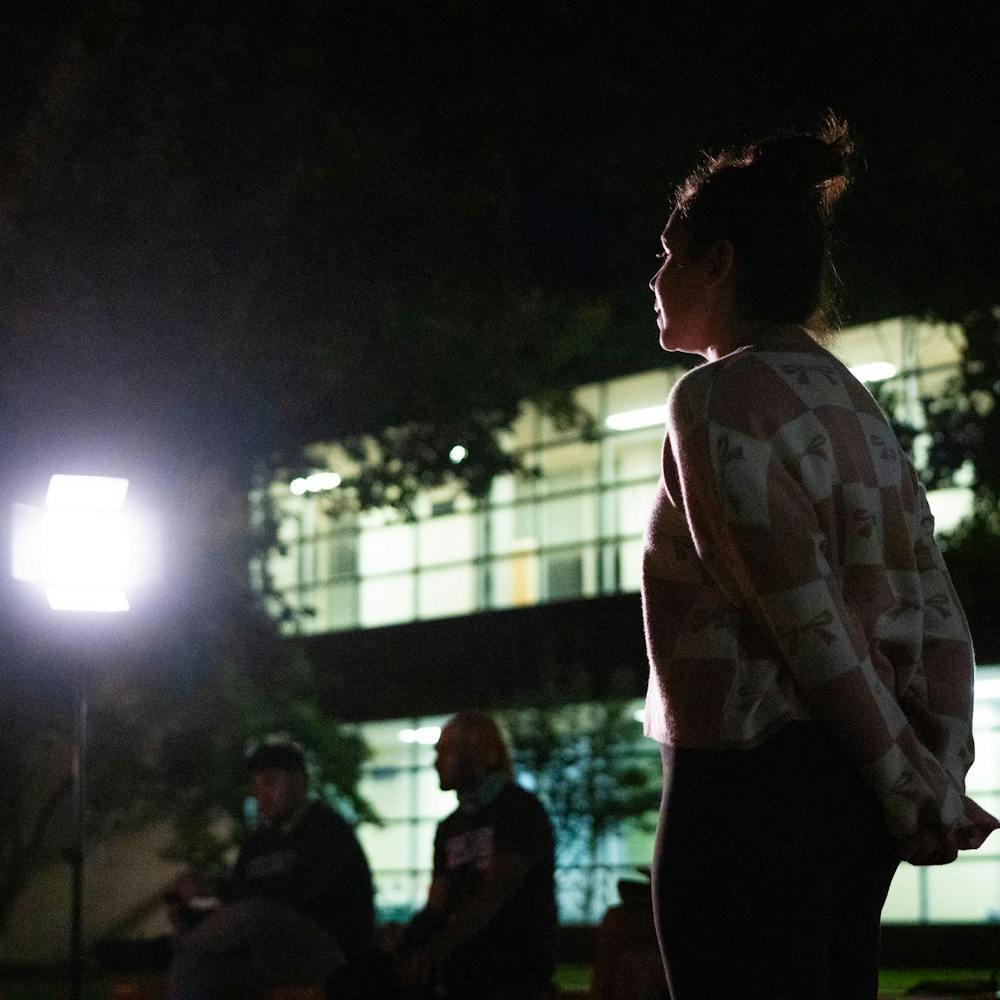Neil DeSouza loves spring and the flowers it brings. But unfortunately for the international relations and comparative cultures and politics freshman, the flowers do not love him back.
“When springtime comes around, my nose gets stuffed up a bit, and my eyes get itchy and water really easily — it’s all around unpleasant,” DeSouza said.
Although some students have been enjoying the unexpected heat wave, others, such as DeSouza, have been hit with allergy symptoms earlier than in past years.
According to Jeff Andresen, an associate professor of geography, the environmental cycle is at least four weeks ahead of schedule, causing pollen to be in the air much earlier.
William Marino, a meteorologist with the National Weather Service in Grand Rapids, said he has records that date back to 1892, and not once has there been a warm spell like the one experienced this spring.
“The average high temperature (for March) in Grand Rapids is 47 degrees, and we have a high of 87 degrees,” Marino said of Thursday’s weather. “That’s 40 degrees above normal — that has never happened in 121 years.”
Dr. Edward Rosick, medical director of the College of Osteopathic Medicine Family and Community Medicine Department, said he already has noticed people complaining of runny noses, sneezing and itchy eyes.
“If they take seasonal allergy medicines, sometimes they won’t start until April or May,” he said. “They really should start taking them now.”
Rosick said the allergy season has started about four weeks earlier than normal, possibly because of warmer temperatures.
Andresen said the mild weather during the winter has caused the environment to see the effects of spring early, accounting for the extra pollen now in the air.
“Plants are cold-blooded organisms and respond directly to the temperature of their environment,” he said. “The first stage of many of these species is to bud out into flowers, and pollen is associated with these flowers.”
He said the lack of rainfall in the past week also has affected the pollen levels, as rain usually decreases pollen levels.
Andresen said he expects the pollen levels to decrease in the next few days and the temperatures to remain cooler until June. He also predicts more precipitation this spring and summer.
“That usually helps, at least temporarily, to clean the air a little bit,” he said.
Support student media!
Please consider donating to The State News and help fund the future of journalism.
Discussion
Share and discuss “Spring allergies aggravated early” on social media.






